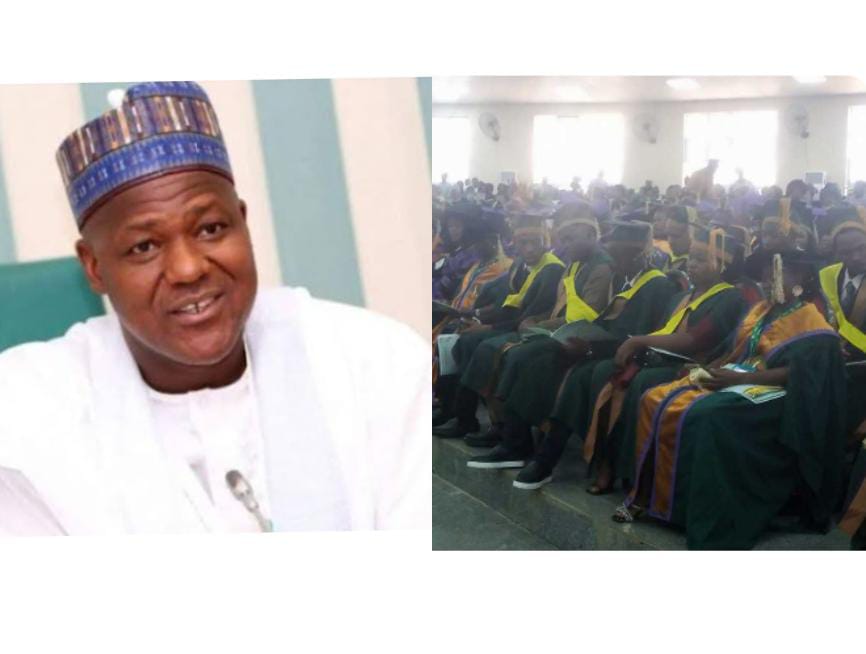
Addressing the Challenges of Nigeria’s Youth: The Need for Skills Development and Acquisition Centres
By: Hon. Olakusibe Morakinyo Obayan.
Introduction: Nigeria’s youth population, which constitutes a significant portion of the country’s demographic, faces numerous challenges, ranging from unemployment and underemployment to inadequate access to quality education and vocational training.
These issues have often led to widespread frustration and protests, as young Nigerians demand better opportunities and a more inclusive economy. The recent waves of protests, including the ongoing “End Bad Government” movement, underscore the urgent need for the government to address these concerns through practical and sustainable solutions. One such solution is the establishment of skills development and acquisition centres across the nation.
The Challenges Faced by Nigerian Youth Unemployment and Underemployment: According to the National Bureau of Statistics (NBS), Nigeria’s unemployment rate stood at 33.3% as of Q4 2020, with youth unemployment even higher at 42.5%. This dire situation is exacerbated by the lack of job opportunities and the mismatch between the skills possessed by graduates and those required by the job market.
Educational Gaps: The educational system in Nigeria has struggled with issues such as outdated curricula, inadequate funding, and poor infrastructure. These problems result in graduates who are often not adequately prepared for the demands of the modern workforce.
Economic Instability: Economic challenges, including inflation and fluctuating oil prices, have had a severe impact on the country’s economy. This instability disproportionately affects young people, limiting their employment prospects and entrepreneurial activities.
Social Discontent and Protests: The combination of economic hardship and lack of opportunities has led to social discontent among the youth. Protests, such as the End SARS movement and the current “End Bad Government” movement, highlight the frustration and demand for systemic changes.
The Role of Skills Development and Acquisition Centres
To address these challenges, the government should consider the establishment of skills development and acquisition centres. These centres can play a pivotal role in equipping young Nigerians with the necessary skills to thrive in a competitive and dynamic economy.
Vocational Training: These centres should offer comprehensive vocational training programs in various fields, such as technology, agriculture, manufacturing, and services. This training will provide young people with practical skills that are in demand in the job market.
Entrepreneurship Programs: Beyond vocational training, the centres should also offer entrepreneurship programs. These programs can teach young people how to start and manage their own businesses, providing them with the tools and knowledge to become successful entrepreneurs.
Technology and Innovation Hubs: Incorporating technology and innovation hubs within these centres can encourage young Nigerians to engage in tech-driven enterprises. This approach aligns with global trends and prepares the youth for the future of work.
Government’s Role and Recommendations
To make the establishment of these centres a reality, the government must take decisive actions. Here are some recommendations:
Policy Framework: Develop a comprehensive policy framework that outlines the goals, structure, and operational guidelines for the skills development and acquisition centres. This framework should involve input from relevant stakeholders, including the private sector and educational institutions.
Public-Private Partnerships: Foster partnerships with private sector companies, non-governmental organizations (NGOs), and international development agencies. These partnerships can provide funding, expertise, and resources to support the centres.
Sustainable Funding: Ensure sustainable funding for the centres through a combination of government budget allocations, grants, and private investments. Establishing a dedicated fund for skills development can help maintain the financial stability of the centres.
Monitoring and Evaluation: Implement a robust monitoring and evaluation system to assess the effectiveness of the centres. Regular assessments will ensure that the programs offered are relevant and that the centres are achieving their intended outcomes.
Youth Engagement: Engage with the youth in the planning and implementation process. Their input and feedback are crucial in designing programs that meet their needs and aspirations.
Presidential Support and Departmental Collaboration
President Ahmed Tinubu’s administration has the unique opportunity to make a significant impact on the future of Nigeria’s youth. The federal government, through the Ministry of Youth and Sports Development, can spearhead the initiative to establish skills development and acquisition centres.
This department, in collaboration with the Ministry of Labour and Employment, can ensure that the programs offered align with current Labor market demands and future trends.
Additionally, the Ministry of Education can play a crucial role in integrating these vocational and entrepreneurial training programs with the formal education system, ensuring that young Nigerians receive a well-rounded education that prepares them for both employment and entrepreneurship.
Conclusion;
The challenges faced by Nigeria’s youth require urgent and comprehensive solutions. Establishing skills development and acquisition centres across the country can provide young Nigerians with the opportunities they need to build successful careers and contribute to the nation’s economic growth.
By investing in the future of its youth, the government can foster a more inclusive and prosperous Nigeria, addressing the root causes of discontent and paving the way for a brighter future. With the support of President Ahmed Tinubu’s administration and relevant government departments, this vision can become a reality, transforming the lives of millions of young Nigerians.
The ongoing “End Bad Government” protests serves as a powerful reminder of the urgency and importance of these initiatives.
Written by: By: Hon. Olakusibe Morakinyo Obayan










